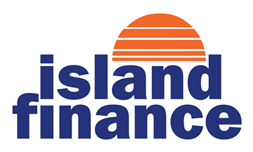To effectively manage your monthly earnings, it’s crucial to create a financial budget. A budget is a strategic plan that helps you allocate your money wisely, ensuring you cover necessary expenses while saving for the future. This also controls your spending, avoiding risky decisions and helps you set up financial goals by tracking your progress.
Island Finance understands the significance of budgeting and offers some practical tips to help you design a successful plan:
- Calculate your monthly income
- List your monthly expenses
- Allocate 50% of your income to essential expenses such as utilities, housing, transportation, food, childcare, and loan payments. Eliminate subscriptions and services you don’t need.
- Set aside 30% for discretionary spending on things you enjoy, like dining out, travel, or gifts. Take a closer look at your spending habits, identify which one you can cut and refocus your expenses.
- Dedicate 20% to savings and debt repayment to build financial security and reduce liabilities.
Successful budgeting is fundamentally grounded in the art of prioritization, and a well-structured financial plan can serve as a valuable roadmap for achieving both your short-term and long-term monetary goals. To begin this journey, start by diligently tracking your expenses over a minimum period of three months. This practice will provide you with crucial insights into your spending habits, enabling you to pinpoint specific areas where you might be able to cut back.
Creating a detailed budget table can be an effective tool for monitoring your finances and keeping you on course as you work toward your financial objectives. An essential component to include in your budget is the establishment of an emergency fund. Committing to setting aside a certain amount of money each week—even if it’s a modest sum—will help you build this crucial safety net over time.
Furthermore, your financial plan should also incorporate an analysis of how much you can contribute to your 401(k) or any other retirement savings plan. It’s important to remember that budgets will vary significantly based on each individual’s unique financial situation. Therefore, it’s essential to find a budgeting method that resonates with you personally, optimizes your financial resources, and is sustainable in the long run. Stick with it, and you’ll be well on your way to achieving your financial aspirations!
 699-4850
699-4850
